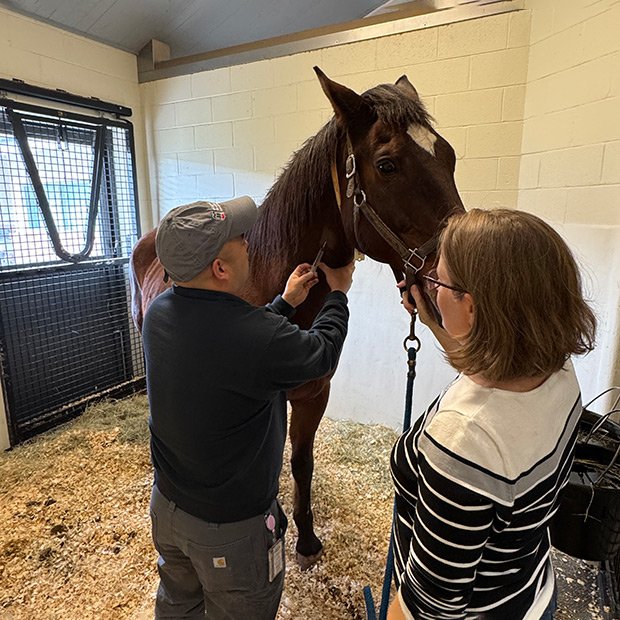[ad_1]
The American Veterinary Medical Foundation (AVMF) and the Veterinary Pharmacology Research Foundation (VPRF) have announced the recipients of the 2024-25 research grants, which aim to support research investigating new and existing drugs for treating animals.
This year’s VPRF-AVMF Pharmacology Research Grant recipients are Dr. Maisie Dawes of Western University of Health Sciences (WesternU) College of Veterinary Medicine and Dr. Kelsey Hart of the University of Georgia College of Veterinary Medicine.
Poultry microbiome
Dr. Dawes, an associate professor of immunology and large animal internal medicine, said the $30,000 grant will go toward a study evaluating the effects of bovine lactoferrin (bLF) and lactoferricin B (LFcin B) on the intestinal microbiome of chickens.
The study aims to evaluate the use of the two bioactive agents as alternative nutraceuticals in poultry production at a time when antimicrobial resistance (AMR) is a growing concern.
With the grant, Dr. Dawes and colleagues will conduct three small-scale pilot trials, each with 46 chickens divided into groups that receive bLF or LFcin B, both compounds, or neither.
“Our hypothesis is that chicks given both bovine lactoferrin and lactoferricin B will not only show statistically significant differences in average body weight gain, the primary outcome measure, but will also exhibit improved stability of beneficial gut bacteria and increased diversity of intestinal microbiota,” Dr. Dawes said in an interview with AVMA News.
Dr. Dawes, whose research interests focus on bovine lactoferrin as an alternative to antimicrobials and anti-inflammatory agents, stressed the importance of her work to address the public health issue of antimicrobial stewardship in animal agriculture and general animal welfare, now even more so under the threat of the highly pathogenic avian influenza type A H5N1.
Equine immune system
Dr. Hart, chair of equine studies and director of DVM-PhD program at UGA, and colleagues received a $29,516 grant to investigate intravenous metformin in horses with experimental systemic inflammatory response (SIRS), a condition in which the immune system overreacts to factors such as infection, inflammation, or trauma.
The randomized crossover study will evaluate 15 mg of metformin administered intravenously in eight to 10 middle-aged mares and geldings for four treatment rounds—receiving either metformin or placebo plus experimental SIRS with a low dose of the bacterial molecule lipopolysaccharide or non-SIRS—separated by a four-week minimum washout period.
Using the same group of horses across the four rounds minimizes individual variations between horses while also reducing the total number of horses required for the study.
Dr. Shune Kimura, study co-investigator at UGA, said their study hypothesizes the circulation of metformin will differ in horses with experimental SIRS compared with in healthy horses. A second hypothesis posits that metformin can be given intravenously safely in horses and will improve metabolic and immune responses in horses undergoing experimental SIRS.
“Horses and people are much more similar in the development of SIRS than typical mouse models that are often used as a foundation for development of SIRS treatments for people,” said Dr. Kimura, who is a graduate research assistant. “So, it is possible that we will learn things in this study that may also be useful for human SIRS.”
Dr. Hart also noted funding for equine research is limited, and securing grants can be challenging, despite its potential translational benefits.
Dr. Kimura added: “We hope that findings from our study may help with further investigations of IV metformin and other metabolic modulators as a new arsenal for reducing inflammation and helping with SIRS therapy in people and animals.”
[ad_2]
Source link


